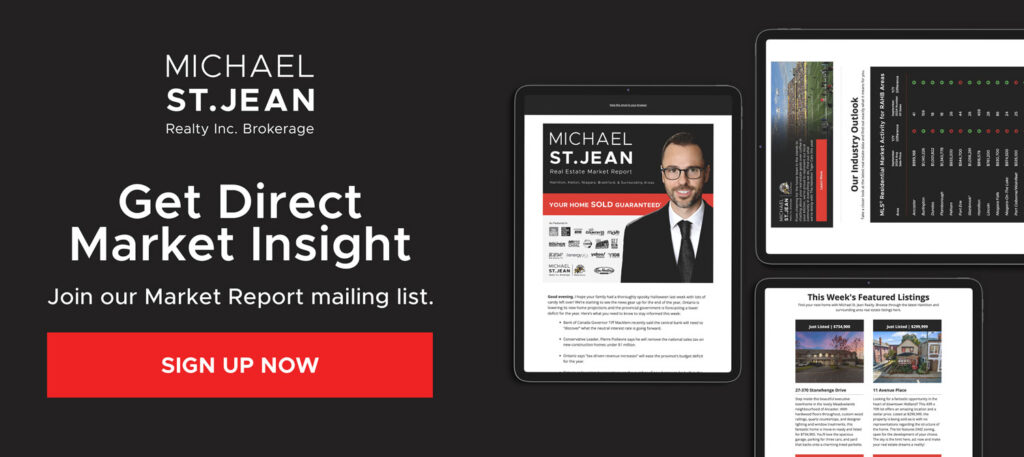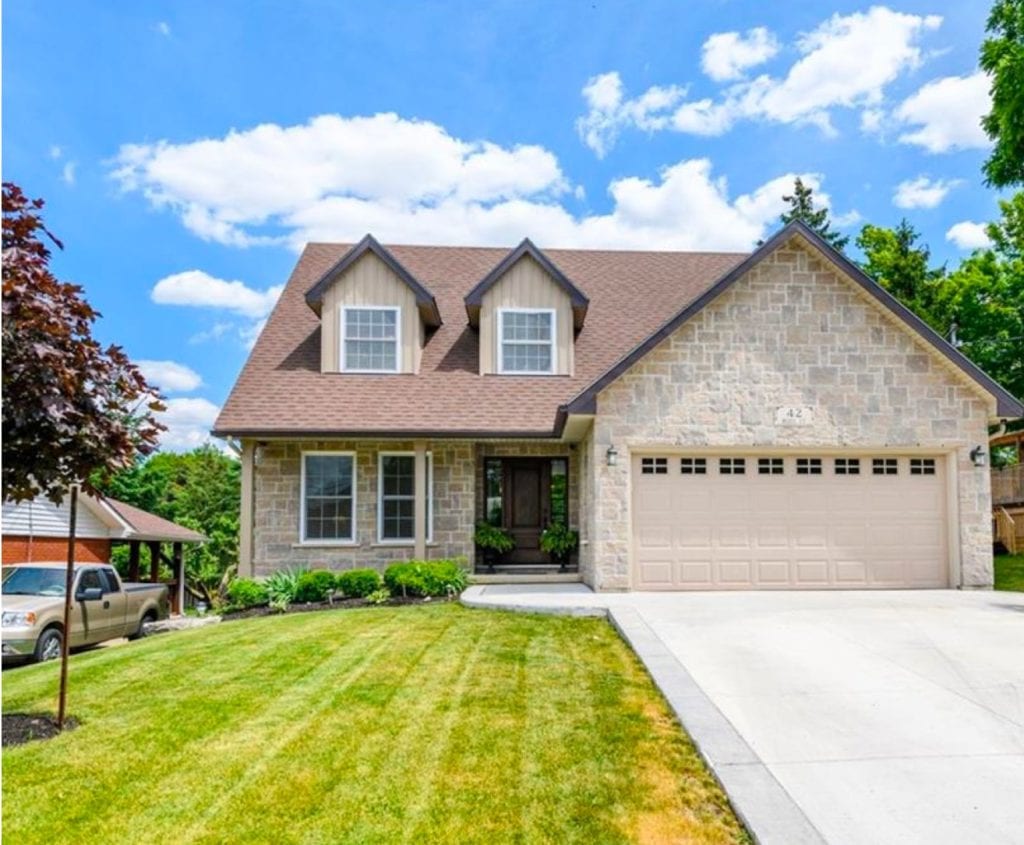
If you’re planning to buy a home in the near future, chances are you’ll need to get a mortgage. A mortgage is a financial product that is an agreement between you and your lender (usually a bank). The lender agrees to lend you the money at an interest rate, and in return, the bank has the right to take ownership of the property if you are unable to pay. Once the mortgage amount is paid in full, the agreement becomes void and you officially own your home.
That might sound scary at first, but the reality is that almost every single Canadian homeowner currently has a mortgage, or had one in the past. Even extremely wealthy Canadians who could probably afford to buy a home in cash often opt for mortgages.
But when it comes to types of mortgages in Canada, there’s a lot to know. Not all mortgages are the same, and the mortgage product you choose depends entirely on your unique situation and needs.
So what are the different types of mortgages in Canada?
Mortgage Terms to Know
Before we get too deep into different types of mortgage loans, we need to understand the conventional mortgage and some of the lingo involved.
Typically, a mortgage is comprised of several different parts:
- Down Payment – The initial upfront payment paid to your lender. Most lenders require at least 20% of the total purchase price as a down payment, however, there are some ways around this. If you are purchasing a home with less than 20% down, you may be required to pay for mortgage insurance or higher fees as a result.
- Mortgage Amount – This is the total amount of your mortgage loan, minus your down payment. The mortgage amount takes into account both the principal and interest.
- Principal – The amount of your mortgage that is not interest. As you pay down the mortgage, you will be paying less interest and more off the principal of the loan.
- Interest Rate – This is the rate of interest you will be charged for your mortgage. The interest rate is determined by numerous factors all depending on what type of mortgage you opt for.
- Term – Most mortgages have 5-year terms, but they can range anywhere from a few months to several years. The term is the amount of time your mortgage rate and payment are locked in. When your term expires, you will need to renew your mortgage for another term until you pay the full amount.
- Amortization – The amortization period is the overall length of the mortgage. Most Canadians opt for a 20-25 year amortization period. However, you can choose your own amortization depending on your financial situation and goals.
Are you a first-time homebuyer? Learn more about the first-time home buyer incentive right here.
Open Mortgage Vs. Closed Mortgage
One of the first decisions you will likely make when it comes to choosing a type of mortgage is closed or open. There are pros and cons to both options.
An open mortgage is a flexible product that allows you to pay off the full amount faster. You can make multiple payments to the loan without penalty. This is great if you think you may have access to extra money from time to time to pay more on your mortgage, or if you plan on selling your home in the near future. The main drawback of an open mortgage is that interest rates are usually a little higher than closed mortgages.
A closed mortgage is essentially the opposite. You enjoy a lower interest rate, however, there are penalties to pay if you choose to make extra payments to pay off the loan faster. Closed mortgages are best for someone who plans to keep their home for the duration of their amortization period.
Fixed Rate Mortgage Vs. Variable Rate Mortgage
Many homeowners have many opinions about the pros and cons of fixed rate vs. variable rate mortgages. Essentially, these types of mortgages are determined by how your interest rates are calculated and applied.
A fixed-rate mortgage locks you into one interest rate for the duration of your mortgage term. This means your payments will not fluctuate and you will not be impacted by changes to the prime lending rate. A fixed rate mortgage is great for someone with a low risk tolerance, who wants to know exactly how much they will pay and for exactly how long.
The biggest con when it comes to this type of mortgage is that the interest rate you pay is typically much higher than a variable rate. However, for some, the stability is worth it.
A variable rate mortgage is a popular choice for many Canadians. This mortgage is impacted by the Bank of Canada’s policy rate, and your payments or amortization period can fluctuate depending on the prime lending rate.
Variable rate mortgages are slightly riskier since your payments can go up or down, but the main benefit is that the interest rate is usually much lower than a fixed rate mortgage, and you are typically able to pay off your mortgage faster.
Are you looking for your dream home in Hamilton? Check out our latest homes for sale in Hamilton here.
Traditional Mortgage Vs. Reverse Mortgage
When we’re talking about different types of mortgages in Canada, we are also referring to traditional vs. reverse mortgages.
A traditional mortgage is what most Canadians apply for. These loans consist of an initial down payment, a mortgage loan amount, and regular payments. As you make payments, you build equity. Equity is the portion of your home that you actually own, that is not technically owned by the bank. Once your amortization period is over and the debt is fully paid off, you officially own your home.
A reverse mortgage is a different type of mortgage loan in Canada where retirees or people age 55+ can apply, qualify and receive equity payments from their lender. The payments are tax-free and the loan doesn’t need to be repaid until you move out of the house.
Portable Mortgage Vs. Assumable Mortgages
Making moves up and down the property ladder is a normal part of life for many Canadians. First, you buy a “starter home” and then move into your “forever home.” But what happens to your mortgage when you make these moves?
A portable mortgage allows you to transfer your existing mortgage to a new home if you choose to sell your existing home. This is ideal for homeowners who have favourable mortgage terms and want to keep the same mortgage.
It also helps you to avoid any pre-payment penalties you might incur from paying off your existing mortgage early. Note: not all mortgages are portable, so it’s best to fully understand your mortgage contract and speak with your mortgage broker or lender before making any decisions.
An assumable mortgage, like the name implies, allows you to take over someone else’s mortgage or have someone take over your mortgage. This type of mortgage works for buyers who have experienced interest rate increases since getting their initial mortgage. It also works for sellers who are in the process of buying a less expensive home and wish to avoid pre-payment fees.
The important thing to note for assumable mortgages is that the terms and conditions of the original mortgage must stay the same.
Are you thinking about buying or selling in the near future? Check out our top questions to ask a real estate agent here.
What About the Home Equity Line of Credit (HELOC)?
A HELOC is a form of credit secured by the equity in your home. HELOCs can either be a standalone loan or combined with a mortgage. As revolving credit, homeowners with a HELOC can pay down their mortgage and then borrow again up to the credit limit.
Essentially, the more you pay down your mortgage, the more credit you have on your HELOC. In most cases, lenders only require you to make monthly interest payments. This type of combined mortgage is good for homeowners who are disciplined and in tune with their finances. It allows you to access available credit and pay the mortgage down at your own pace. However, it could also lead to carrying more debt if you aren’t careful.
HELOCs are nuanced. It’s important to understand the full range of benefits and disadvantages of this type of loan. You can learn more about them on the Government of Canada website here.
Michael St. Jean Realty is your local Hamilton real estate expert. Whether you’re moving up or downsizing, we can help. Call us today at 1-844-484-SOLD or email us here to find out more.



